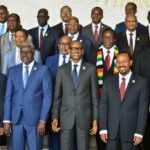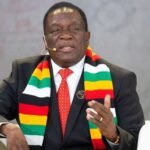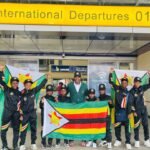Nigeria’s access to a $602.95 million USAID grant for 2025 is now in jeopardy following President Donald Trump’s decision to suspend all agency programmes for 90 days. The suspension, which stems from an executive order signed in January 2025, mandates a comprehensive review of U.S. foreign aid to assess its effectiveness, eliminate waste, and ensure alignment with American national interests.
As a result, crucial funding for health, governance, economic development, and security remains frozen, disrupting multiple USAID-supported initiatives across Nigeria. The uncertainty surrounding the grant has raised concerns about the country’s ability to sustain essential services that rely heavily on external assistance.
In the wake of the aid freeze, the Nigerian Senate has summoned top intelligence officials to investigate allegations by U.S. Congressman Perry Scott that USAID funds have been misused, with some reportedly funnelled to terrorist organisations, including Boko Haram. The inquiry will involve the heads of the National Intelligence Agency (NIA), Defence Intelligence Agency (DIA), Department of State Services (DSS), and National Security Adviser Nuhu Ribadu. The decision to probe these claims follows an urgent motion put forward by Senator Ali Ndume (Borno South).
According to the 2025 USAID budget proposal, a significant portion 89.27% of the total $602.95 million was designated for healthcare programmes. Of this amount, $368 million was allocated to combat HIV/AIDS under the Global Health Programme, with additional funds earmarked for tuberculosis, malaria prevention, maternal and child health, and reproductive health services. However, funding for water and sanitation was notably low, standing at just $2.5 million, sparking concerns over access to clean water, particularly in rural communities.
With USAID funding temporarily halted, the Nigerian government has approved an emergency allocation of $200 million to sustain healthcare services. This includes vaccine procurement, distribution of antiretroviral drugs, and maternal healthcare support. Additionally, plans are underway to absorb 28,000 health workers previously funded under the USAID programme to prevent disruptions in service delivery. The Federal Executive Council has also sanctioned ₦4.5 billion for HIV treatment packs to assist Nigerians living with HIV/AIDS.
Beyond healthcare, the aid suspension has cast doubt over democracy and governance initiatives, which were set to receive $7.5 million. These funds were intended to support the rule of law, civil society engagement, and human rights advocacy. Similarly, security funding initially set at $7.6 million was aimed at enhancing Nigeria’s defence capabilities, including conflict mitigation strategies, military partnerships, and law enforcement support. A reduction in these allocations could significantly impact the country’s ongoing battle against Boko Haram and ISWAP insurgents.
Economic growth programmes have also been affected, with $39.6 million initially earmarked for agriculture, private sector productivity, and clean energy projects. If the aid suspension extends beyond the initial 90-day review period, Nigeria may need to seek alternative funding from domestic revenue sources, the World Bank, or the African Development Bank to bridge the gap.
The U.S. Embassy in Nigeria has denied allegations that USAID funds were misused, emphasising that strict monitoring mechanisms are in place to prevent diversion to terrorist groups. Additionally, the U.S. government has reaffirmed its commitment to supporting Nigeria in its counterterrorism efforts and condemned Boko Haram’s actions.
During a Senate plenary session on Wednesday, Senator Ndume stressed the importance of thoroughly investigating Scott Perry’s claims, stating that verifying USAID fund usage is essential to addressing concerns about potential misappropriation. Senator Abdul Ningi (PDP, Bauchi-Central) supported the motion, recommending a closed-door session with intelligence chiefs for a more detailed briefing. The Senate adopted this approach, with Senate President Godswill Akpabio underscoring the need for classified discussions before taking further action.
Officials in Borno State have acknowledged concerns over the possible misuse of foreign aid. Brig. Gen. Abdullahi Ishaq (retd.), Special Adviser to Governor Babagana Zulum, referenced previous reports of non-governmental organisations (NGOs) engaging in suspicious activities linked to insurgency financing. Chief of Defence Staff Gen. Christopher Musa also highlighted instances where Boko Haram members were found in possession of foreign currency, raising questions about their sources of funding. He urged the United Nations to investigate the financial and logistical support sustaining terrorist groups operating in Nigeria.
As scrutiny over USAID funding intensifies, Nigeria faces the challenge of filling potential financial gaps across multiple sectors. The government now faces increased pressure to identify alternative funding sources to maintain essential services and security operations in the absence of U.S. assistance.










